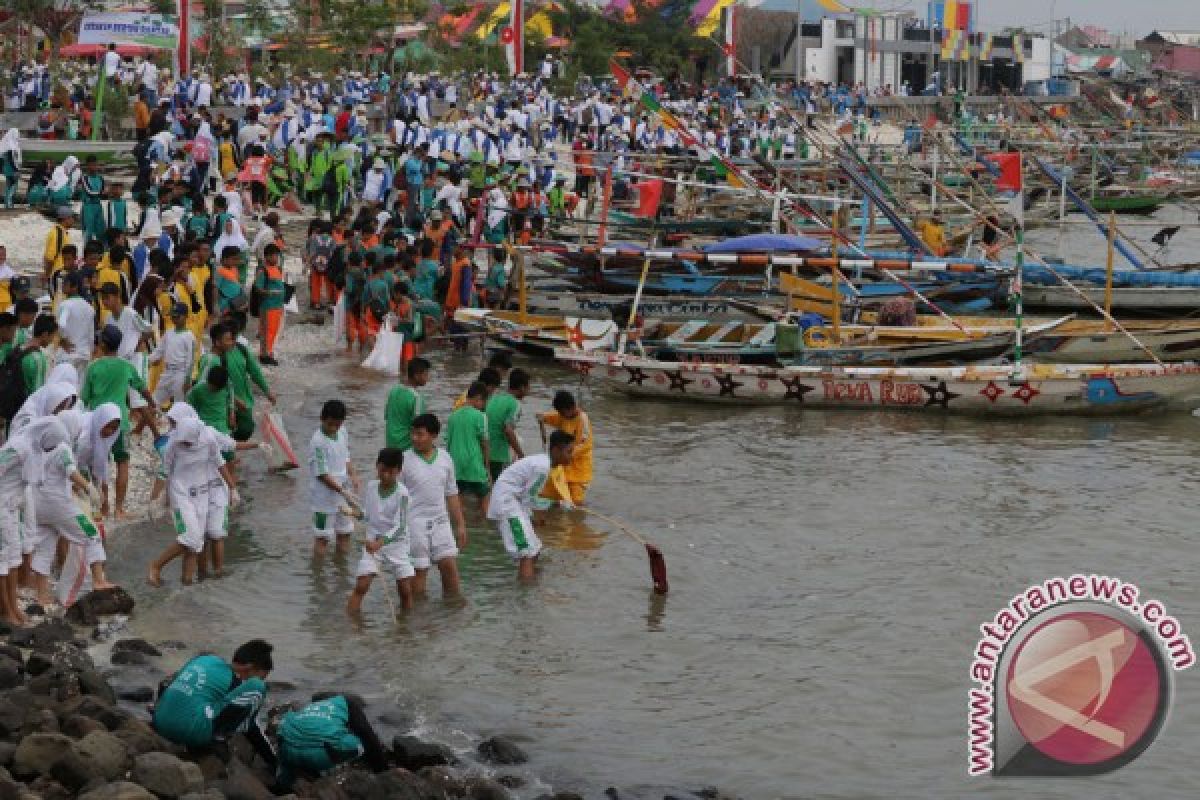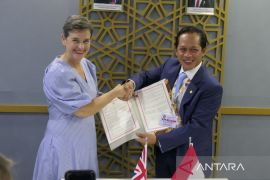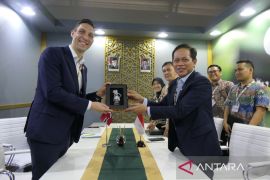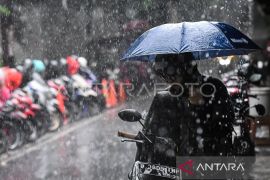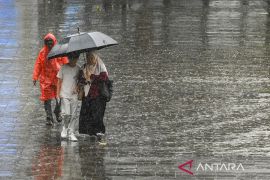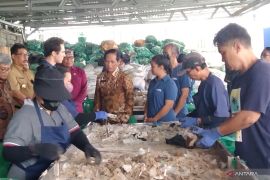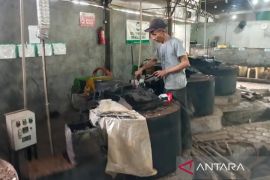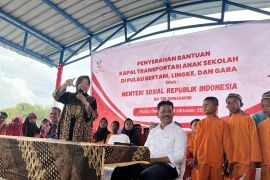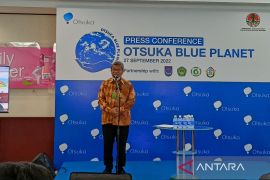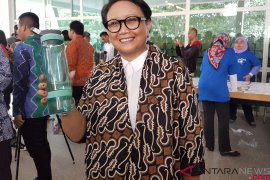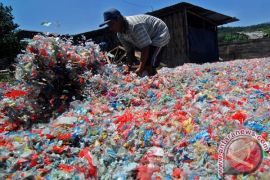Researchers of the Wakatobi Fisheries and Maritime Community Academy were shocked to find 5.9 kilograms of plastic waste in the whale`s stomach, including flip-flops and 115 drinking cups.
The giant mammal had ingested 750 grams of 115 plastic cups, 140 grams of 19 hard plastic, 150 grams of four plastic bottles, 260 grams of 25 plastic bags, six pieces of wood weighing 740 grams, two flip-flops of 270 grams, a 200-gram nylon sack, and over a thousand pieces of raffia string weighing 3,260 grams, Laode Ahyar, an official of the Wakatobi National Park, informed an Antara correspondent in Kendari, Southeast Sulawesi, on November 20, 2018.
The cause of the whale`s death was not known, but considering the large lump of plastic waste in its stomach, it is mostly likely that the plastic waste caused the animal`s death.
This is the second whale stranded ashore the Wakatobi waters this year, after a 13-meter-long whale was found dead in the Bombana waters, last February.
Plastic waste is littering oceans and threatening the lives of millions of marine animals. Seals, whales, dolphins, seabirds, fish, crabs, and several other marine animals are dying and falling sick after being contaminated by plastic waste, thereby raising serious environmental concern.
Indonesia, the world`s largest archipelagic nation rich in marine biodiversity, is known as one of the major producers of plastic waste.
According to data of the Environmental Affairs and Forestry Ministry, the amount of plastic waste used in Indonesia continues to increase, from nine percent in 1995 to 16 percent this year.
Disposable plastic bags, plastic straws, styrofoam, and plastic bottles are widely used in Indonesia, which is an oil-producing country and the world`s largest archipelagic nation, with a population of some 260 million.
Every year, around one-third of the marine biota, including coral reefs and also seabirds, die owing to plastic wastes that end up in the ocean.
This situation is a matter of grave concern, considering that coral reefs play a major role in protecting the coast from erosion, coastal flooding, and other destructive events caused by the sea water phenomena. Coral reefs also offer food and shelter for the growth for various marine biota.
Plastic straws, in particular, are included in the top 10 serious problems in the world.
Some 93 million plastic straws are used by Indonesians per day and the cause of environmental pollution, especially in the waters.
Data from the Ministry of Environment and Forestry indicates that some 70 percent of the plastic waste in Indonesia can and has been recycled but not plastic straws. No recyclers are willing to recycle straws, as they have no economic value.
"Plastic straws need long time to decompose. When micro plastic ends up in the waters, it would cause pollution and threaten the ecosystems. This is a serious problem," Environment and Forestry Ministry`s Waste Management Director Novrizal Tahar noted in Jakarta, recently.
Efforts to reduce the use of plastic straws have been undertaken by several stakeholders, including McDonald`s Indonesia, with its #Mulaitanpasedotan (start with no straw) movement.
In addition to plastic straws, Indonesians use 9.8 billion plastic bags every year, of which almost 95 percent would end up as waste, Environment and Forestry Minister Siti Nurbaya noted at the 14th Asia Pacific Roundtable on Sustainable Consumption and Production (APRSCP) recently.
The high percentage of plastic waste in Indonesia is caused by the people`s lack of awareness to help preserve the environment.
"Responding to such environmental challenges, we must remind each other that the prerequisite for sustainable development is changing patterns of unsustainable production and consumption, changing routine practices, and habits or lifestyles," she explained.
Nurbaya opined that all stakeholders should be encouraged to become the agents of change in order to bring about behavioral changes at the levels of government, businesspersons, and society in a systematic, integrative, and massive manner.
The APRSCP is aimed at materializing a change in the governments` role in prioritizing sustainable consumption and production policies, both for business and society, through innovation, sharing experiences, and making concrete implementations in the field to contribute to the achievement of sustainable development goals.
Meanwhile, the Indonesian government is drafting a regulation to tax plastic bags next year in its efforts to reduce plastic waste.
The draft being finalized will offer incentives to companies that produce environmentally friendly plastic bags.
Editing by Yoseph Haryadi
Reporter: Fardah Assegaf
Editor: Suharto
Copyright © ANTARA 2018
